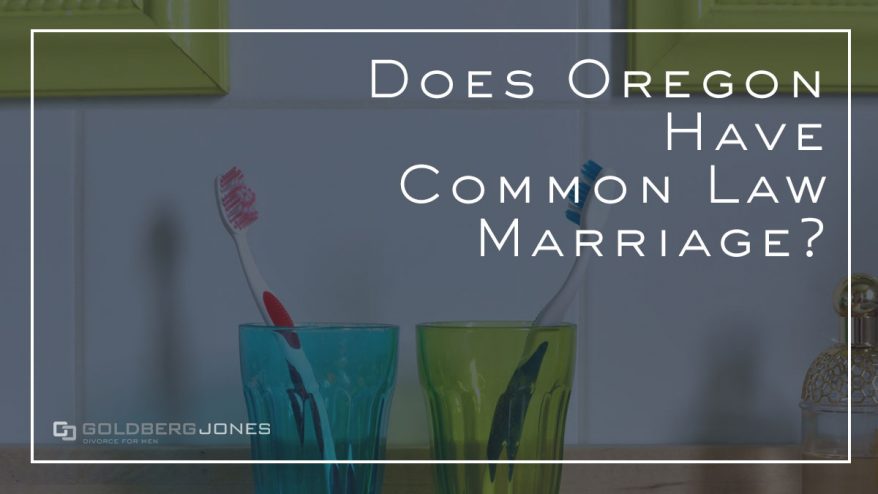A lot goes into a relationship between two people. Navigating interpersonal affairs often resembles a high-wire act. At a basic level, however, marriage is relatively simple. You either are or you aren’t, right? You may try to block it out, or you may regret it ever happened, but no one forgets their wedding day.
But what if you don’t really have a wedding? What if you didn’t really get married? You’ve probably heard the phrase common-law marriage.
People toss the term common-law marriage around quite a bit. It happens all the time with celebrity couples; pairs who have been together for years without actually tying the knot. But many people don’t truly understand what it means. It also begs the question, does Oregon have common-law marriage?
What Is Common-Law Marriage?
In a broad sense, the term common-law marriage means that, after living together for many years without officially marrying, the law considers partners married. How it works practically is usually more complicated than that, but those are the basics. It’s essentially when two people live together as if they’re married, or at least as if they intend to marry.
It’s a kind of de facto marriage or marriage by default. A couple shares bank accounts, often has kids, and generally view each other as spouses. People frequently use this term colloquially to refer to any long-term domestic relationship, even if the label is technically incorrect.
How common-law marriage works also varies from place to place. In reality, it’s only a factor in limited locations and a handful of states.
Does Oregon Have Common-Law Marriage?
The short answer is no, Oregon doesn’t have common-law marriage. With so many misconceptions about the concept, Oregon keeps it simple. You can’t create a common-law marriage here.
However, the state does acknowledge those from other places. According to the Oregon State Bar:
“[I]f a couple is from a state that acknowledges common-law marriages, and the couple meets the requirements of common-law marriage of that state, then the state of Oregon will recognize the marriage of that state as valid in Oregon.”
Related Reading: Establishing Paternity in Oregon
Rights of Unmarried Partners
Just because Oregon doesn’t have common-law marriage, doesn’t mean you’re without rights in long-term relationships.
Cohabitation without marriage happens more frequently now than ever. Couples live together, mix finances, buy homes, have children, and for all intents and purposes, act married.
But unless you have a common-law marriage from another state, unmarried couples aren’t protected by the same laws when it comes to dividing property in the event of a split.
In general, each partner generally retains their own property. Except in cases where you intentionally commingle assets. The law views jointly owned property as belonging equally to both parties.
You do have the option to ask the court to divide assets, though it’s a complicated, roundabout legal process.
In most cases, you should reserve this for major holdings, like houses or cars. It’s probably well worth it just to buy new furniture.
However, if your name isn’t on something, things become tricky. When your name doesn’t appear on, say the title of a car, you need to show that the intent was to share.
Situations often grow muddy. If you go this route, hiring an attorney is probably your best bet.
Spousal support is one element that doesn’t play a part in long-term relationships. Again, unless there’s a pre-existing common-law marriage, this isn’t an option. You neither pay nor receive alimony in the case of a break-up.
This is also an evolving field and Oregon has an ever-growing domestic partnership body of law. A common interpretation of this concept views all property as in play when determining an equitable split. While they can’t divide retirement plans, some judges compensate in other ways. We’re seeing more cases like this regularly and it’s becoming more like divorce than ever.
Related Reading: How Legal Marijuana Impacts Child Custody
Custody Rights
The rights and obligations of parents don’t change due to marital status. Wed or not, that doesn’t impact the matter.
If you have kids, the court considers child custody, child support, visitation, and other concerns the same way, regardless of whether the parents are married or not.
Biological and adoptive parents retain the same parental rights whether there’s a ring on that finger, a common-law marriage, a domestic partnership, or no relationship at all.
You pursue custody and visitation through identical legal channels. Depending on the situation, you may either pay or receive child support. All of the usual things that play a role in divorce and custody battles also apply to unmarried parents.
The short answer to the question of whether or not Oregon has common-law marriage is no, no it doesn’t. Long-term relationships fall into a unique category and breakups play out differently than divorce. Different laws apply, but you’re not entirely on your own when one goes bad. You face additional pitfalls, but there are ways to deal.
Related Reading: What Are A Father’s Rights? (Whether Married or Unmarried)
